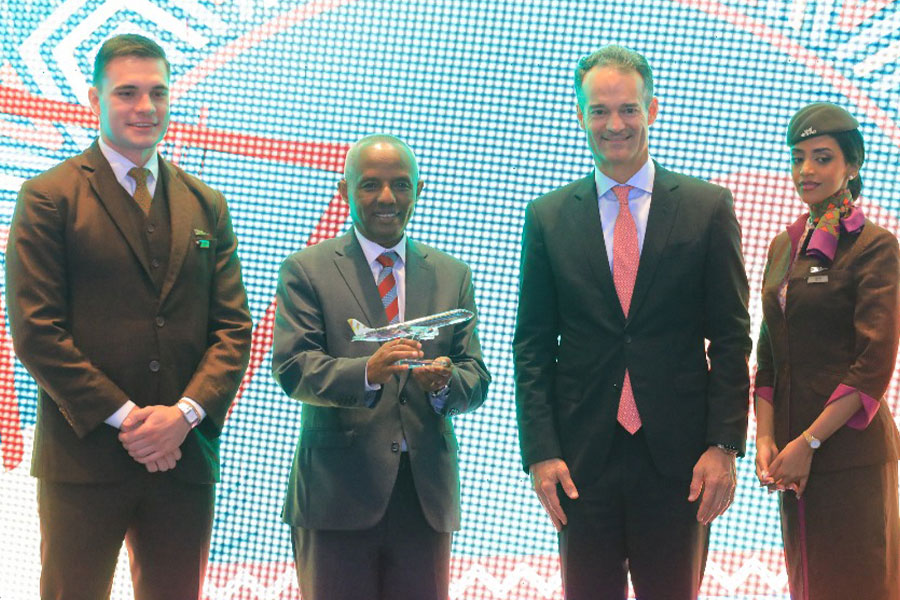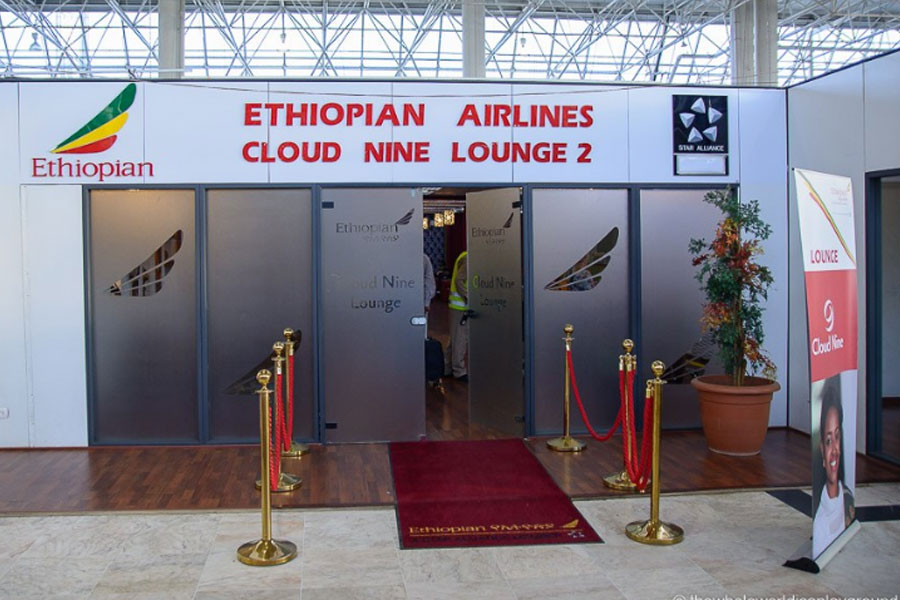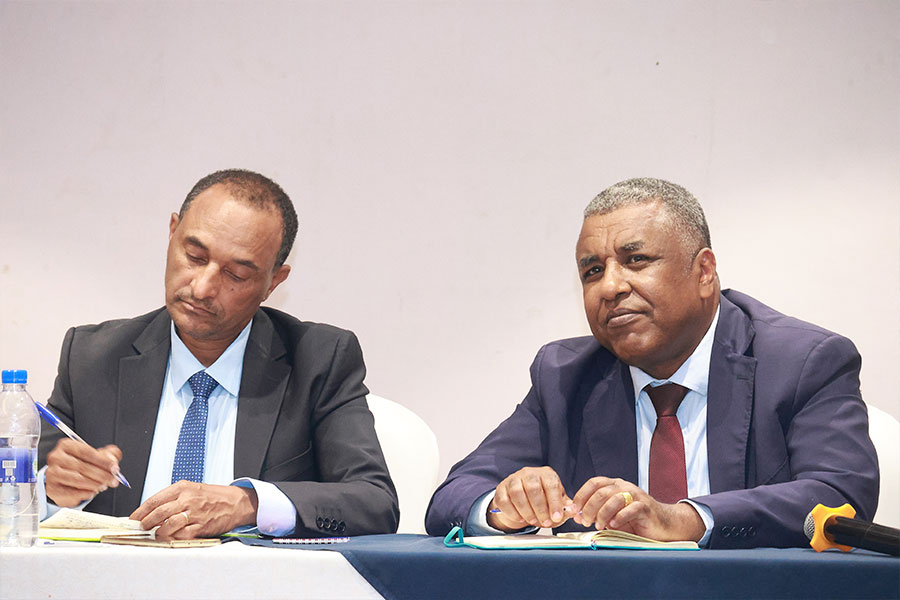
Ethiopian Airlines, the national carrier, introduced mid-month rotating furlough leave for its entire staff at the beginning of this month. The company, which lost a little over half a billion dollars in revenue in just three months, claims that it offered the scheme to protect the its 16,002 employees from the spread of the Novel Coronavirus (COVID-19).
Dubbed the flexi-time work schedule, the new furlough scheme enables employees to work for 15 calendar days and take leave the other half without pay.
The new schedule will last for an unspecified time. A few months ago, the company furloughed contract employees for three months without pay.
The circular that was issued on August 1, 2020, with the signature of Wasihun Asres, acting vice president of the airline in charge of human resources, claims that the scheme was introduced following the request and suggestions from the employees to maintain social distancing.
“Corporate human resources has accepted the employees’ voluntary proposal as a win-win solution … in order to reduce the congestion and thereby allow social distancing at the workplace,” reads the circular Fortuneobtained.
The circular cites the fact that the pandemic is spreading in the country at an alarming rate, especially in Addis Abeba.
As of Friday, August 22, 2020, the total number of confirmed cases in the capital reached 23,120, representing 61pc of the total cases in the country.
"The spread of the virus among our employees has increased at an alarming rate, and the current number of confirmed cases has been a major concern to our airline family," reads the circular.
To enforce social distancing within the compound in workplaces, employee cafeterias and ground transport vehicles, the management of the airline mentioned an urgent need to reduce the number of employees at work.
An email the vice president sent to all of the managers explains that management has been taking various measures to contain the spread of the virus, ranging from splitting transport services, changing reporting hours and staggering days off to alternating hours at the cafeteria.
Beyond spreading among employees, the virus has led Ethiopian to operate at only 20pc of its capacity. Its flights to over 87 destinations have been suspended, and over 80 percent of the fleet has been grounded. Between January and April this year, the airline, which supports over one million jobs and contributes five percent of the country’s GDP, lost over 550 million dollars in revenue.
Flying to 127 international and 22 domestic destinations, Ethiopian earned an operating profit of 260 million dollars in 2019. It has been registering an average of 25pc annual growth over the past seven years.
The circular states that those who opt to take the leave should contact their immediate supervisors for approval after filling out a form that will be distributed for employees.
The airline used one of the solutions that other global airlines are using to survive through this tough situation, according to Ahmed Kellow (PhD), former CEO of Ethiopian and the managing director of First Consult.
Airlines are fast running out of cash globally, according to Ahmed, who added that Ethiopian tried to survive by aggressively working on its cargo business, which has now slowed down.
The air transport industry, which globally supports a total of 65.5 million jobs and provides 10.2 million direct jobs, is facing the deepest crisis ever in history. It could incur 352 to 390 billion dollars in potential losses of gross passenger operating revenue. The number of passengers also declined by 53pc to 60pc in 2020 compared to the previous year.
Reports show that over 80,000 pilots, flight attendants and other airline workers globally face unpaid time off for an uncertain future. Earlier this month, United Airlines announced that up to 36,000 of its workers could be furloughed and 17,000 employees of Delta left the company after taking buyouts and early retirement packages.
Ahmed, who agrees that the furlough scheme is one of the airline's necessary resorts for survival, says that the number of days that employees are given without pay can be reduced if the company explores other means of revenue generation.
"To increase revenue, the management can cut airfare, try to bring in some commodities that require air cargo services, and provide maintenance services and training for other airlines," he said.
The corporate communications division of Ethiopian did not respond to email inquiries from Fortune.
PUBLISHED ON
[ VOL
, NO
]

Fortune News | Oct 12,2025

Exclusive Interviews | Jan 05,2020

Fortune News | Apr 26,2019

Life Matters | Jul 18,2021

View From Arada | Aug 05,2023

Fortune News | May 15,2021

View From Arada | Jun 15,2019

Radar | May 18,2024

Radar | Jun 22,2019

Radar |

Dec 22 , 2024 . By TIZITA SHEWAFERAW
Charged with transforming colossal state-owned enterprises into modern and competitiv...

Aug 18 , 2024 . By AKSAH ITALO
Although predictable Yonas Zerihun's job in the ride-hailing service is not immune to...

Jul 28 , 2024 . By TIZITA SHEWAFERAW
Unhabitual, perhaps too many, Samuel Gebreyohannes, 38, used to occasionally enjoy a couple of beers at breakfast. However, he recently swit...

Jul 13 , 2024 . By AKSAH ITALO
Investors who rely on tractors, trucks, and field vehicles for commuting, transporting commodities, and f...

Oct 11 , 2025
Ladislas Farago, a roving Associated Press (AP) correspondent, arrived in Ethiopia in...

Oct 4 , 2025
Eyob Tekalegn (PhD) had been in the Governor's chair for only weeks when, on Septembe...

Sep 27 , 2025
Four years into an experiment with “shock therapy” in education, the national moo...

Sep 20 , 2025
Getachew Reda's return to the national stage was always going to stir attention. Once...